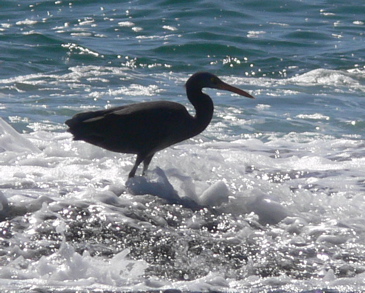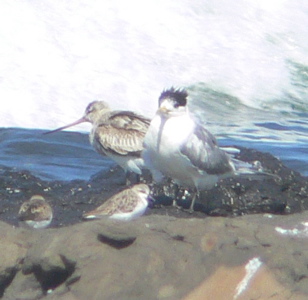This is a holiday - Labour Day.
While I am thoroughly enjoying myself, I am noticing that my Learning efforts are taking a bit of a dive.
I began reading "Philosophical Classics" yesterday. This is an excellent introduction and overview of western philosophy. It is also a great motivator to begin reading some of the actual books that are mentioned.
6:30 am
This is only the second page of notes related to philosophy that I have made this year.
I began reading "Philosophical Classics" yesterday and feel motivated to make a few summary notes.
The first 16 books provide a "whirlwind" tour of western philosophy.
1. Bertrand Russell (1912) The Problems of Philosophy
This is considered to be one of the best introductions to the whole subject of philosophy.
I will have to obtain this, read it, and compare it with my favorite introduction, The Story of Philosophy by Will Durant.
2. Plato (5th century BC) The Republic
The primary question is about justice, but there are also major sections on the nature of reality and perception. The allegory of "The Cave" is very familiar to me. and I recognize this as the fundamental idea behind the movie "The Matrix".
I have read parts of this, but have never actually sat down and read it from cover to cover, carefully. Retirement is an excellent time to do this. I must keep my eyes peeled for a good copy of this. I recall seeing such a book, on all of Plato, in a bookstore in Spokane about 5 years ago. I also recognize "The Cave" as the fundamental idea behind the movie "The Matrix" and have a book that discusses this at length. I need to reread this book as well.
3. Aristotle (4th century BC) The Nicomachean Ethics
Plato is often classified as a rationalist because he used "pure rational thought" to try to comprehend the nature of the universe. Aristotle is considered to be an empiricist since he began with an observation of the world and then tried to made sense of what he saw. Aristotle also considered the idea of what makes someone a "good person" and used the idea of virtue as being the midpoint between two extremes, the so-called "virtuous mean". "To act virtuously in Aristotle's ethics, one needs to practice constantly, to learn from one's mistakes, to continuously monitor one's own behavior. This makes ethics an everyday discipline.
This sounds like a book I would enjoy.
4. Augustine (5th century AD) The Confessions
In The Confessions, Augustine brought autobiography into philosophy. "This book is a fascinating read, and a remarkable portrait of a life from a completely different era than our own."
This is becoming a bit daunting. I have read the brief synopsis for each of the first four books and now want to read all of them.
5. Rene Descartes (1641) Meditations on First Philosophy
Descartes "saw the perfect, necessary truths of mathematics as a possible starting point for building a system of knowledge about the world." Descartes also made a clear distinction between the mind and the body - referred to as dualism in the philosophical literature.
I am fascinated by the efforts of philosophers to form categories and labels and treat almost everything as a form of "either - or". They often see issues in terms of black and white distinctions and do not seem to have grasped the idea of continuity.
I need to run a search in amazon.com to see what versions of all of these first five books are currently available.
6. Thomas Hobbes (1651) The Leviathan
"The net result of our making individual contracts is that society becomes a 'commonwealth', in which we give up some of our individual freedoms in order to create a society which benefits all. ... Hobbes felt that the creation of the commonwealth effectively creates a new, conglomerate person, the Leviathan, who is entrusted with social order and resonsibility."
This is very similar to much current literature about the Web and whether it represents a new form of consciousness. It also raised the issue of control - a thorny issue at the moment.
"Many political liberals tend to take Rousseau's view that people are essentially good, while many conservatives take the Hobbesian viewpoint that people are essentially selfish and that we need a strong system of regulation and punishment in order to create a good society."
7. Gottfried Wilhelm Leibniz (1686) Discourse on Metaphysics
Leibniz "saw a parallel between the necessary truths of pure mathematics and the immortal truths of God. He built a complex system based on a logical analysis but this has not found favour among future generations.
I have a small pocketbook on Leibniz that I now want to have a second look at.
8. John Locke (1690) An Essay Concerning Human Understanding
"At the root of his thinking was the theory that all knowledge is gained from experience. He described the human mind at birth as a tabula rasa, a blank tablet ... This empiricist viewpoint led him to the conclusion that we are only capable of a limited knowledge of the world." He also describes how we can use some ideas to build other ideas -not everything must come from the external world. "... he is forced to conclude that we can't have any real certain knowledge, but must instead be content with probable knowledge, which is made more acceptable by the fact that we share the same theories or suppositions with other people. But he believes that this is adequate for us to live our lives, and that we are able to make moral decisions."
This all seems reasonable to me.
We are back from a birding trip to one of our favorite beaches. It is called Sharpes beach and is the northern side of flat rock beach. The southern side is called Angel Beach. I think I have that straight. In addition to the birds on flat rock, we were fortunate enough to see a pair of Rainbow Bee-eaters. Another bird joined them - after looking at the photos we were able to determine it was a Striated Pardalote (a new lifer).
While at flat rock we saw a very large number of Crested Terns, about a dozen Ruddy Turnstones, a few Silver Gulls, a Ringed Plover, a couple of Sanderlings, a Black-tailed Godwit, and a couple of groups of smaller peeps. We also saw a dark grey heron on the rocks, which we were able to identify from the photos as an Eastern Reef Egret (another lifer).
A very good day.









